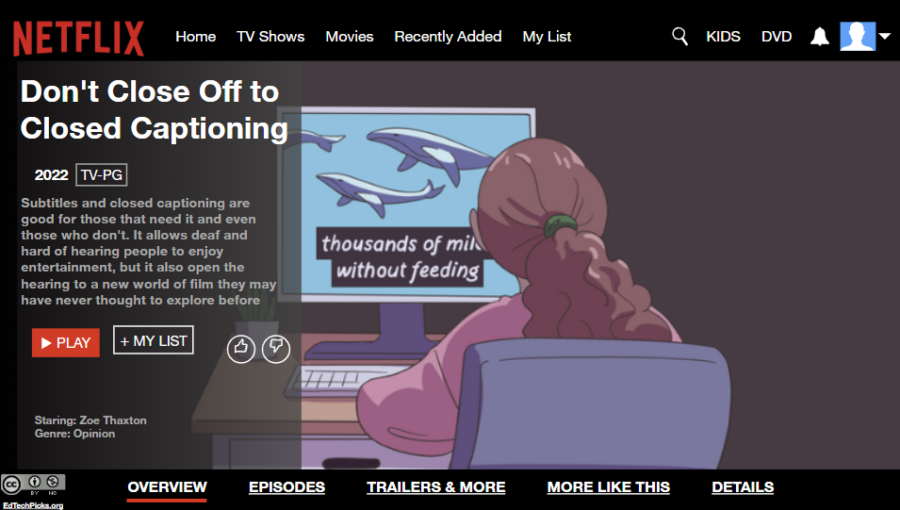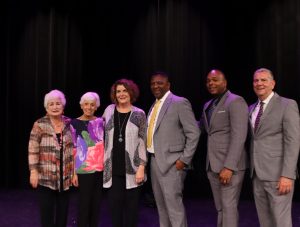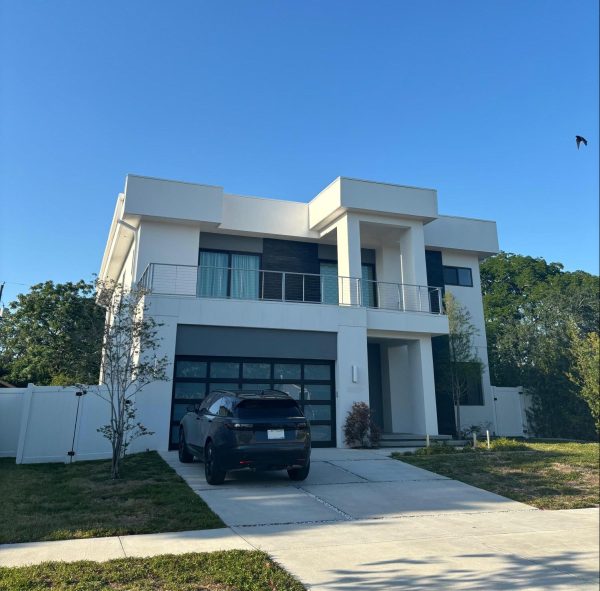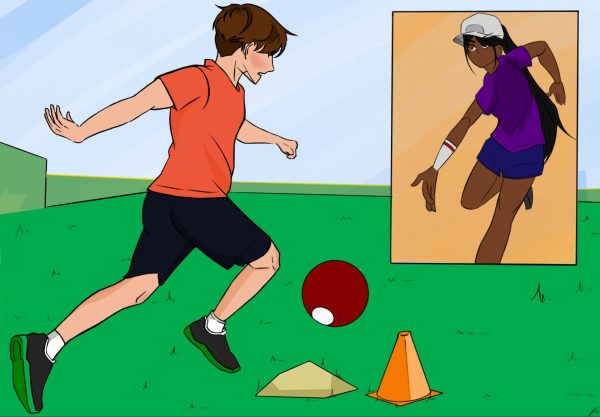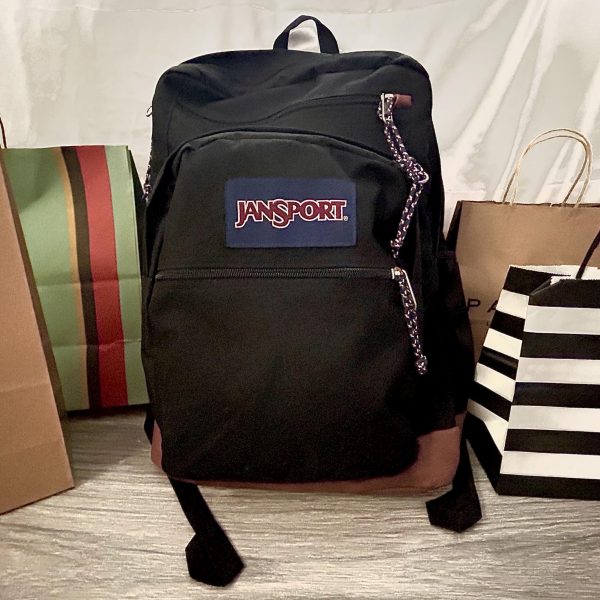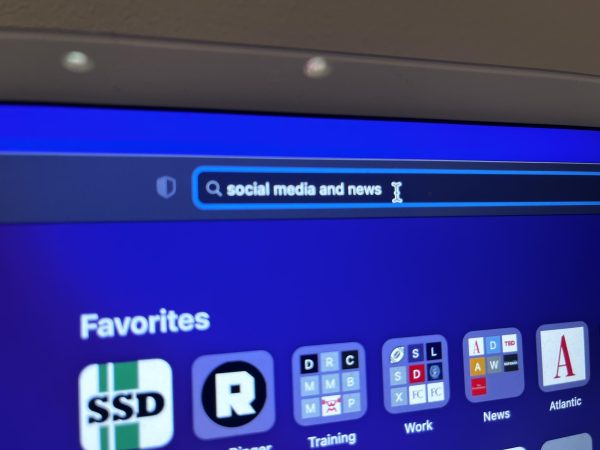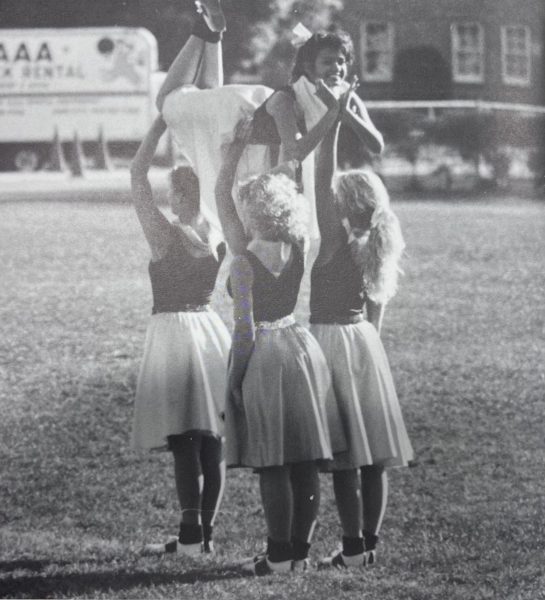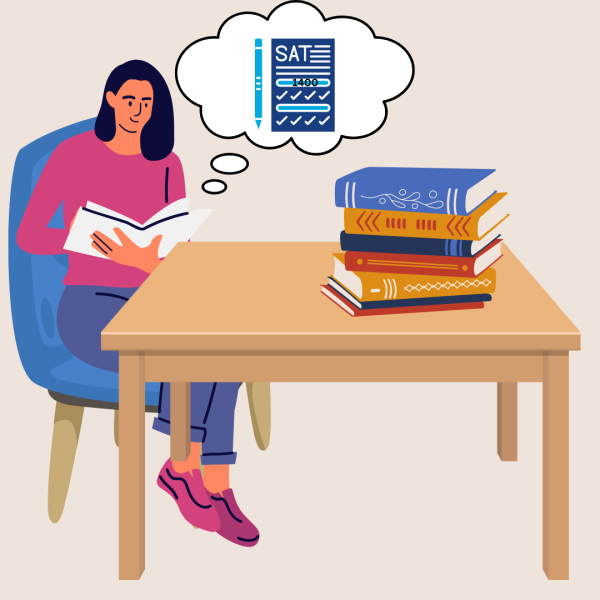Don’t Close Off to Closed Captioning
Subtitles and closed captioning are good for those that need them and even those who don’t.
Photo Zoe Thaxton
The graphic depicts a mock-up Netflix show profile about closed captioning.
November 18, 2022
Anytime I switch on a movie or television show of any kind, subtitles and captions remain on. I purposely make sure my Netflix account has them turned on. I love them and need them to watch anything.
I’ll admit, I’ve never had the greatest hearing. Sometimes I struggle and ask my friends to repeat what they said even if they are right in front of me. I keep my volume at a relatively high level when watching on my television. In fact, I started to watch many series on my phone so the sound of whatever I’m watching doesn’t have to travel across an entire room. However, I am not deaf. I am not here to talk over the Deaf community nor those who are hard of hearing, but to advocate for the words at the bottom of the screen.
I will address this right away. While subtitles and captions are similar, there is a technical difference between the two. Captions are for people who cannot hear what is being said in a video while subtitles are for those who can hear, but can’t understand the language being spoken. Regardless of this, both work to transcribe and relay what is being done or spoke in a movie or TV show.
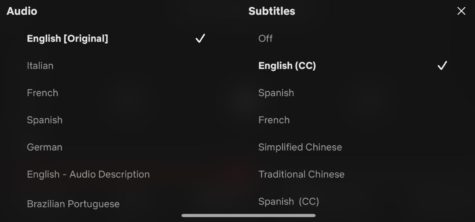
Now, I’ve heard all the arguments when I boot up my accounts for movie night. Mostly I get asked why I leave them on and a simple, “I just like it” remains suffice… but some just keep bothering me about why I like them (or rather, why they don’t).
“I don’t like to read when I’m watching a movie!”
Then I must say to you, that is your loss. They don’t “ruin the movie.” It’s not like you’re reading a novel. You are still watching a movie, only the dialogue and certain sounds get written at the bottom of the screen. It’s not in the way. It doesn’t obstruct the view of the action. In fact, I argue that it enhances it.
“Stranger Things” is a prime example that utilizes captions in their stories. When turned on, viewers are gifted with an explanation of all the other-worldly descriptions of the noises heard. Season 4 has prime examples of “tentacles undulating moistly,” and “fissure writhing wetly” in certain parts of the season. Disgusting imagery, but I love it. How else would it capture the essence of horror and fantasy creatures in words to someone who can’t hear it? Just like that.
Not only do these words open a new world within the English-speaking genre but subtitles open viewers to movies and shows they may have never watched before. Because of its purpose being for those who don’t understand a language, captions translate what is being said into a language viewers can understand. Foreign films now become watchable for all and not just the country they originate from.
Once you overcome the one-inch tall barrier of subtitles, you will be introduced to so many more amazing films.
I watched “La Casa De Papel” (or the Anglicized title “Money Heist”) over the summer for a Spanish class with captions (and no translated audio) and it was fantastic. The story was mesmerizing and intriguing. I was never lost during the course of the series, despite that I can’t completely understand Spanish, because of the subtitles.
Similarly, the Oscars saw their first non-English speaking movie to win Best Picture: “Parasite,” a Korean film. Many praised the movie (hence why it won an Oscar), but some trashed on it for not being in English. They complained about reading during a movie, that it takes away from the action on screen. To that, director Bong Joon-ho quipped in his acceptance speech, which he spoke almost entirely in Korean, “Once you overcome the one-inch-tall barrier of subtitles, you will be introduced to so many more amazing films.”
He was right. It’s just a small piece on the screen, it shouldn’t take away from the viewing experience whatsoever. People just like to have an excuse to be closed-minded, because truly, captions and subtitles allow for more people to be able to watch entertainment despite having a disability or not understanding the language. They bring people together under similar viewing experiences.
Honestly, the screen feels empty without the presence of subtitles and captions. I’ve been opened to a new world and I can’t enjoy movies without them anymore. Even if I did have the greatest hearing in the whole world, I would never opt to be without subtitles and captions again.

